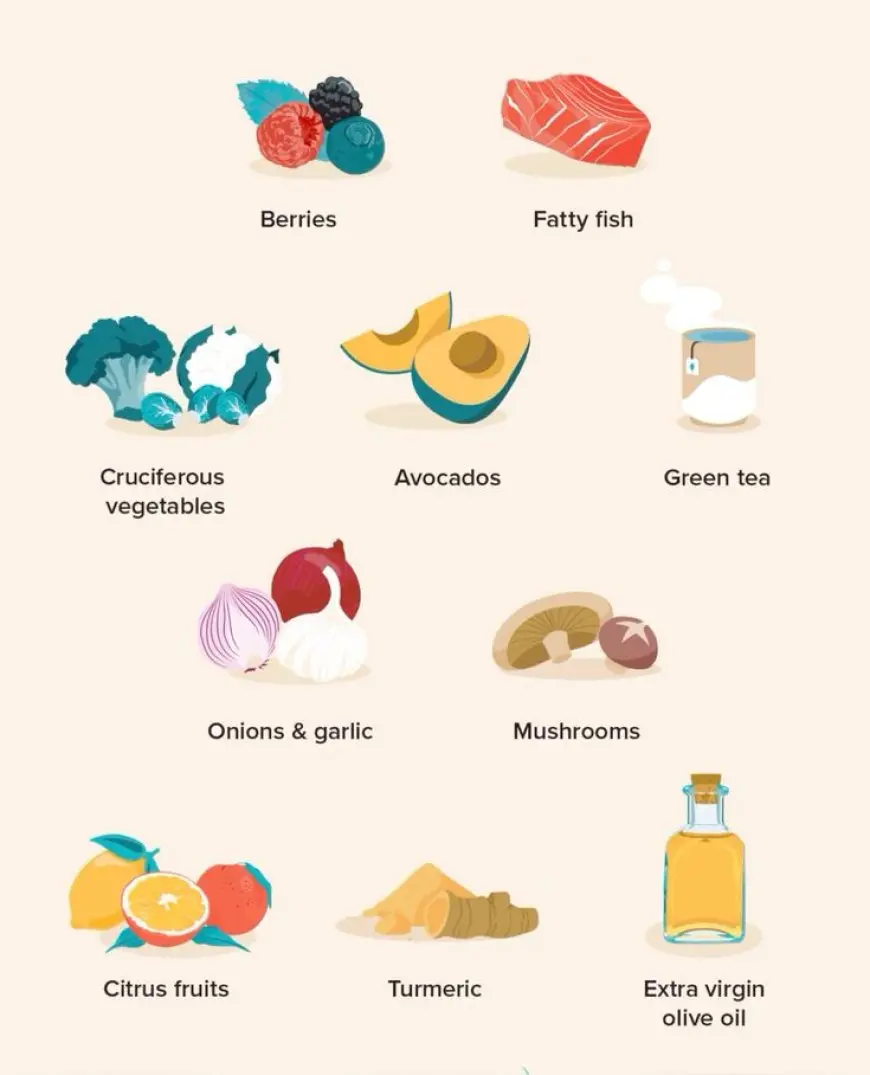Foods That Help Reduce Inflammation
Foods That Help Reduce Inflammation

Chronic inflammation is linked to various health issues, including heart disease, diabetes, arthritis, and even certain types of cancer. While inflammation is a natural response by the body to injury or illness, long-term inflammation can be harmful. A healthy diet rich in anti-inflammatory foods can help combat this.
Leafy Green Vegetables
Spinach, kale, and Swiss chard are packed with antioxidants, vitamins, and minerals. They are particularly high in vitamin K and polyphenols, which have anti-inflammatory properties. Adding leafy greens to salads, smoothies, or stir-fries is an easy way to include them in your meals.
Berries
Blueberries, strawberries, raspberries, and blackberries are rich in antioxidants like anthocyanins, which help reduce inflammation and protect against cellular damage. Enjoy them fresh, frozen, or as a topping for yogurt and oatmeal.
Fatty Fish
Salmon, mackerel, sardines, and tuna are excellent sources of omega-3 fatty acids, which are powerful anti-inflammatory compounds. Aim to include fatty fish in your diet at least twice a week. For a plant-based option, try flaxseeds, chia seeds, or walnuts, which are also high in omega-3s.
Turmeric
Turmeric is a spice with curcumin, a compound known for its strong anti-inflammatory effects. Adding turmeric to soups, stews, or smoothies, or even enjoying a turmeric tea, can provide these benefits. Pair it with black pepper to enhance curcumin absorption.
Nuts and Seeds
Almonds, walnuts, chia seeds, and flaxseeds are rich in healthy fats, fiber, and antioxidants. They help reduce inflammation and support overall heart health. A small handful of nuts or a sprinkle of seeds on your meals can go a long way.
Olive Oil
Extra virgin olive oil is a staple of the Mediterranean diet and contains healthy monounsaturated fats and anti-inflammatory compounds like oleocanthal. Use it as a base for dressings, marinades, or drizzled over cooked vegetables.
Tomatoes
Tomatoes are rich in lycopene, an antioxidant with strong anti-inflammatory properties. Cooking tomatoes, such as in sauces or soups, increases the bioavailability of lycopene, making it easier for your body to absorb.
Green Tea
Green tea is loaded with antioxidants called catechins, which help reduce inflammation and support overall health. Drinking a cup or two daily can provide these benefits. For variety, try matcha, a powdered form of green tea that is especially rich in antioxidants.
Whole Grains
Brown rice, quinoa, oats, and other whole grains are high in fiber, which helps reduce inflammation by promoting a healthy gut microbiome. Choose whole grains over refined grains for their superior nutrient content and health benefits.
Citrus Fruits
Oranges, lemons, grapefruits, and other citrus fruits are excellent sources of vitamin C, which helps combat inflammation and strengthen the immune system. Enjoy them as snacks, in salads, or as freshly squeezed juice.
Dark Chocolate
Dark chocolate with a cocoa content of 70% or higher contains flavonoids, which are anti-inflammatory antioxidants. Enjoying a small piece as a treat can satisfy your sweet tooth while benefiting your health.
Incorporating these anti-inflammatory foods into your diet can help protect against chronic inflammation and promote overall well-being. Pair them with regular exercise, good sleep, and stress management for the best results.







